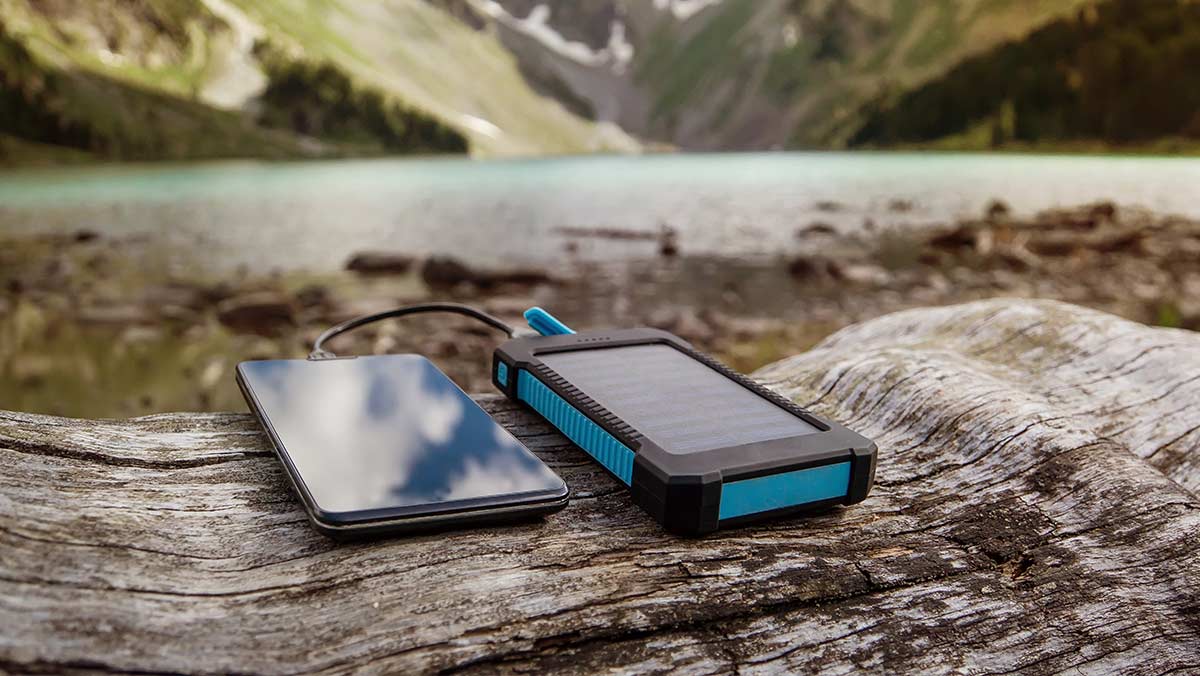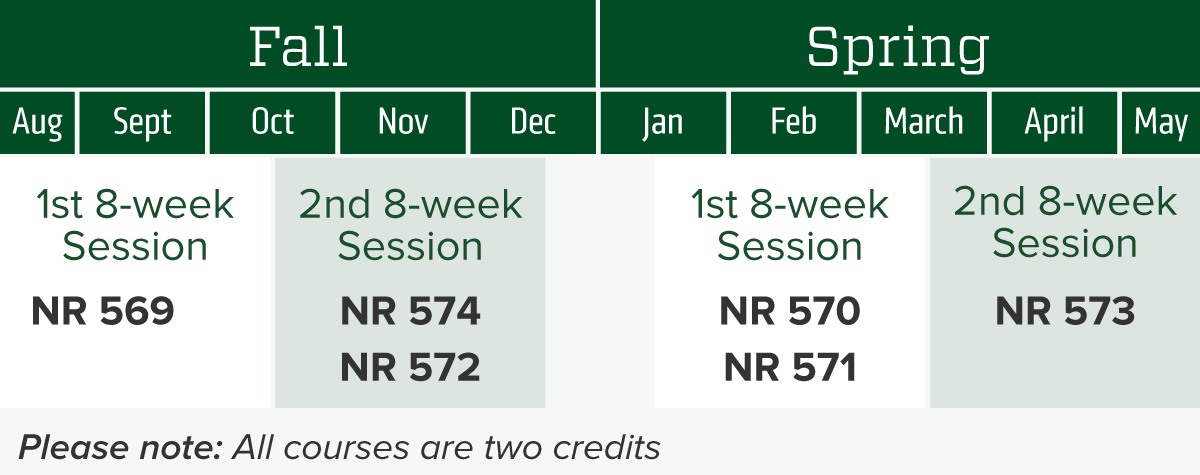


Select one of the options below:

Communicating effectively with a wide variety of audiences is an essential skill for professionals working in conservation-related fields. Creating the right strategy requires careful planning, from messaging to media selection. This program gives you proven tools for developing successful conservation messages, media-relations programs, strategic communication and social media plans, and engaging with leaders and decision-makers.
In a time when information can be rapidly disseminated across dozens of different channels, this program provides much needed environmental communication training for natural resource managers, scientists, researchers, and other practitioners working in the conservation field.
As competition for people’s attention continues to grow, the effectiveness of many conservation initiatives relies heavily on targeted and strategic communications and compelling, relevant messaging. In this program, you will learn how to use approaches rooted in social science and contemporary media communications research and practice to achieve greater success.
Enhance your knowledge and extend your influence. By learning to analyze audiences, create clear and persuasive messaging, and use channels and strategies that will reach the right people at the right time, your communication efforts will be much more productive.
As a student in this program, you will explore:
This graduate certificate is well-suited for natural resource managers, conservation scientists, nonprofit conservation professionals, environmental communication specialists, environmental educators and other practitioners who are responsible for conservation-related projects but also face increasing demand to explain and substantiate their work to stakeholders, funders, policymakers, the media, and the public.
NR 569 – Conservation Communication Fundamentals
Communications theory and conservation social science are explained. Roles for communicators in conservation organizations are examined. Students are introduced to behavior change theory and conservation psychology. Audience analysis and diversity are emphasized for achieving goals in conservation communications.
NR 570 – Conservation Managers – Media Communications
Conservation media literacy and media activities and practices are examined and analyzed. Students learn techniques and practices for developing written and visual media and gaining earned media attention. New directions and strategies in conservation communications are analyzed.
NR 571 – New Media Communications for Conservation
Fundamentals of digital and social media, and strategic online communications are explained and examined. New and emerging digital media platforms for conservation outreach and engagement are discussed and evaluated. Conservation organizations and practitioners’ use of social media, podcasting and video are analyzed.
NR 572 – Strategic Communications for Conservation
Strategic communications planning and messaging for conservation are examined and evaluated, including case studies of specific plans and strategies. Students develop strategic content and materials and evaluation programs using research and best practices.
NR 573 – Conservation Crisis Communications
Examining and developing appropriate conservation communication strategies for conservation/environmental crisis response and recovery. Media, personal and other communications during near- and long-term planning scenarios are examined. Conservation management organizations’ and practitioners’ use of different messages and media platforms are also analyzed.
NR 574 – Advanced Communications for Conservation
Social marketing and conservation marketing principles and projects are explained and evaluated. Students learn political and leadership communications techniques and tactics, including public speaking skills, governmental outreach and testimony and collaborative communications planning.

Current role: Program Manager, Deschutes River Conservancy
“Being an effective communicator is one of the most important attributes that someone can bring to the professional table, regardless of their specific career. Working in an environmental non-profit, as a member of the program’s staff, I utilize the skills I learned through the C4C program daily. From the complex nuances of communications theory that help solve stakeholder issues, to strategies for effective marketing and media relations that elevate organizational awareness, this program will prepare you for almost any task an employer will throw your way.”

Current role: Senior Publications Editor and Writer, ESRI
“During the COVID-19 pandemic, I made the decision to change careers and return to my passion of science writing. As a full-time professional, CSU’s online Communications for Conservation certificate seemed like a great way for me to brush up on my writing and editing skills and augment them with classes on present-day topics such as digital media and crisis communications. Within a few months of finishing the certificate, I received job offers to work as a science writer and editor from two internationally renowned corporations and one federal agency contractor. Not only was the Communications for Conservation program interesting and informative, it provided valuable networking opportunities and gave me the confidence I needed to make a major career change.”
Faculty for the Communications in Conservation graduate certificate have both academic knowledge and real-world, practical experiences in communications and media engagement. They have also worked closely with communications researchers and specialists, conservation practitioners and scientists, and communications experts from industry, government, and other fields to develop and deliver a holistic program that reflects established and emerging ideas and practices in communications for conservation.

Jamie Dahl, PhD
Jamie Dahl, PhD, (she/her) is an Assistant Professor in Human Dimensions of Natural Resources and program lead for the Communications for Conservation Graduate Certificate. Her research uses an environmental justice frame to focus on inclusion and engagement within the natural resource professions. Her career has centered on outreach, communications, and engagement within environmental disciplines. Prior work experiences include outreach and extension, forest management, volunteer management, training, career coaching, education, and research consulting. She has been an active Society of American Foresters (SAF) member for over 20 years and is chair of SAF’s Diversity and Inclusion Working Group. Jamie is also an active Project Learning Tree Facilitator and Women’s Forest Congress participant.
Industry and agency contributors to the program:
Communications for Conservation is a flexible, online graduate certificate tailored for professionals working in conservation-related career fields who are required to communicate on technical, scientific, and policy information, from media relations to public outreach to social and digital media engagement.
The program consists of six, two-credit courses. Each course features an accelerated, eight-week program of study. The curriculum encompasses content, resources, and activities informed by researchers and experts in conservation social science, environmental and science journalism, strategic communications, social media, marketing, and public relations. Students who complete the program will be able to:
Up to six credits from this program may be applied to the online Master of Tourism Management degree. Please work with a Program Coordinator to determine your approved course plan:
Kathryn Metzger
Program Coordinator, Tourism Enterprise Program
(970) 491-7617
Kathryn.metzger@colostate.edu
Linda Sawyers
Program Coordinator, Tourism Enterprise Program
(970) 491-7592
Linda.Sawyers@colostate.edu
Note: You must be admitted to this program for the certificate to appear on your official University transcript.

| Fall semester | July 15 |
| Spring semester | December 1 |
Start your application online and upload materials directly into the online system. You can save your progress and return any time.
Apply NowThe Communication for Conservation graduate certificate requires that students have a bachelor's degree from a regionally accredited institution.
1.) Resume
2.) Official Transcripts: Include one official transcript showing a bachelor’s degree awarded. If you were or are currently a CSU-Fort Collins student, transcripts are not necessary. If you attended a different institution, we need official transcripts from that accredited institution. Transcripts must be received directly from the originating institution to be considered official.
Complete the online graduate application and pay the nonrefundable application processing fee (payable online). As soon as you have completed the required information, please submit your application. Your application will not be reviewed until it is complete and all required materials have been received.
Request one official transcript from the institution where you earned your bachelor’s degree. Transcripts must be received directly from the originating institution to be considered official. Transcripts from Colorado State University are not required.
Electronic (preferred): Digital Transcripts must be submitted by the originating institution using a secure service such as parchment, eScrip-Safe, the National Student Clearinghouse, or e-Quals. Transcripts received via emails are considered unofficial. Use institution code 4075 for Colorado State University or gradadmissions@colostate.edu if the secure service requires an email address.
Mail (if necessary): Graduate Admissions Colorado State University – Office of Admissions 1062 Campus Delivery Fort Collins, CO 80523-1062
View your application status at any time to ensure your application checklist is complete or to check on updates.
Once your complete application, including supporting materials, is received, the department admission committee will review your application and notify you of their decision.
Proof of English language proficiency is required for applicants from countries or United States territories where there are official languages other than (or in addition to) English. This includes the U.S. territories of American Samoa, Guam, the Northern Mariana Islands, and Puerto Rico.